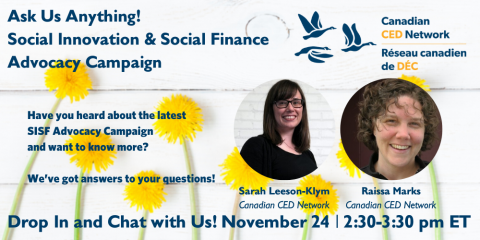How Inter-cooperation Strengthens Co operatives, Economies, and Communities
 2:30pm to 4:00pm Atlantic TIme
2:30pm to 4:00pm Atlantic TIme
You need to look no further than the International Co-operative Alliance’s set of seven principles to see that inter-cooperation is hard-wired into the DNA of the co-operative business model. Considered to be a co-operative superpower, Principle 6 is focused on the critical importance of co-operation among co‑operatives. Register for this webinar for a deep dive on inter-cooperation from diverse perspectives—from business partnerships and supply chains to the development of new co-operatives. All content will be oriented toward the benefits of inter-cooperation and the opportunities to strengthen co-operatives, economies, and communities. In addition, we encourage you to ask questions as well as share your experiences and best practices. The panellists’ presentation and the discussions afterwards will allow you to develop even stronger co‑operatives, while enriching your experiences as a co-operator.
Register for How Inter-cooperation Strengthens Co operatives, Economies, and Communities
Panelists:
- Cory Munden—CEO at Leading Edge Credit Union (Newfoundland)
- Kelly Storie, Executive Director, La Siembra
- Colette Lebel (Director—Cooperative Affairs), Sollio Cooperative Group
Facilitator: Karen Miner Managing Director, International Centre for Co-operative Management, Sobey School of Business, Saint Mary’s University



 Kyle White is the Governance and Education Lead with Co-operatives First. His work focuses on developing and delivering educational and development services for Co-operatives First. Originally from Newfoundland and Labrador, Kyle has worked his way across Canada focusing on community economic development in rural and Indigenous communities. With degrees in Geography and Public Policy, Kyle’s educational background has focused on community development, governance, and organizational policy. Aside from his work with Co-operatives First, Kyle is an active volunteer with several Saskatoon-based non-profits and serves on a variety of boards.
Kyle White is the Governance and Education Lead with Co-operatives First. His work focuses on developing and delivering educational and development services for Co-operatives First. Originally from Newfoundland and Labrador, Kyle has worked his way across Canada focusing on community economic development in rural and Indigenous communities. With degrees in Geography and Public Policy, Kyle’s educational background has focused on community development, governance, and organizational policy. Aside from his work with Co-operatives First, Kyle is an active volunteer with several Saskatoon-based non-profits and serves on a variety of boards. Dr. Alex Wilson, Opaskwayak Cree Nation, is a professor with the Department of Educational Foundations and the Academic Director of the Aboriginal Education Research Centre at the University of Saskatchewan. Her teaching and research focuses on Indigenous land-based education, Queering education and land protection through sustainable housing.
Dr. Alex Wilson, Opaskwayak Cree Nation, is a professor with the Department of Educational Foundations and the Academic Director of the Aboriginal Education Research Centre at the University of Saskatchewan. Her teaching and research focuses on Indigenous land-based education, Queering education and land protection through sustainable housing.